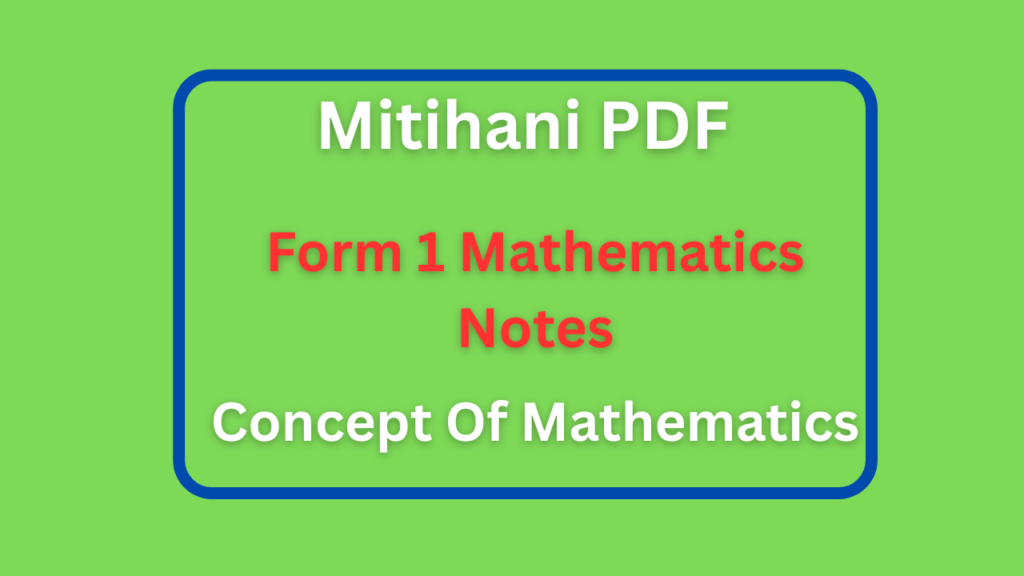Form One Notes: Concept of Mathematics (Tanzania Syllabus)
In the Tanzania education system, Form One Mathematics introduces students to foundational concepts that build critical thinking and problem-solving skills. The syllabus focuses on core areas such as number systems (natural numbers, integers, fractions, and decimals), basic operations (addition, subtraction, multiplication, division), and algebraic expressions. Students learn to solve equations, simplify expressions, and apply the order of operations (BODMAS/BEDMAS). Geometry is also emphasized, covering shapes, angles, perimeter, area, and volume, with practical examples like calculating the area of rectangles or the circumference of circles. Additionally, units on measurements (length, mass, time) and introductory statistics (data collection, representation via tables, bar graphs, and pie charts) help learners connect math to real-world scenarios. These topics align with the competency-based curriculum, aiming to equip students with skills for daily life and advanced studies.
The Tanzania Form One syllabus emphasizes practical application to foster analytical abilities. For instance, problem-solving exercises involve budgeting, unit conversions (e.g., meters to kilometers), or interpreting simple graphs. Teachers often incorporate group activities and visual aids (geometric tools, charts) to enhance understanding. Concepts like ratios, proportions, and percentages are taught through relatable contexts, such as profit-and-loss calculations or resource sharing. The curriculum also introduces basic probability, helping students predict outcomes in games or surveys. By blending theory with hands-on practice, the syllabus ensures learners grasp the relevance of mathematics in fields like agriculture, commerce, and technology. Regular assessments, including quizzes and projects, reinforce these concepts, preparing students for more complex topics in subsequent forms, such as coordinate geometry and trigonometry.

